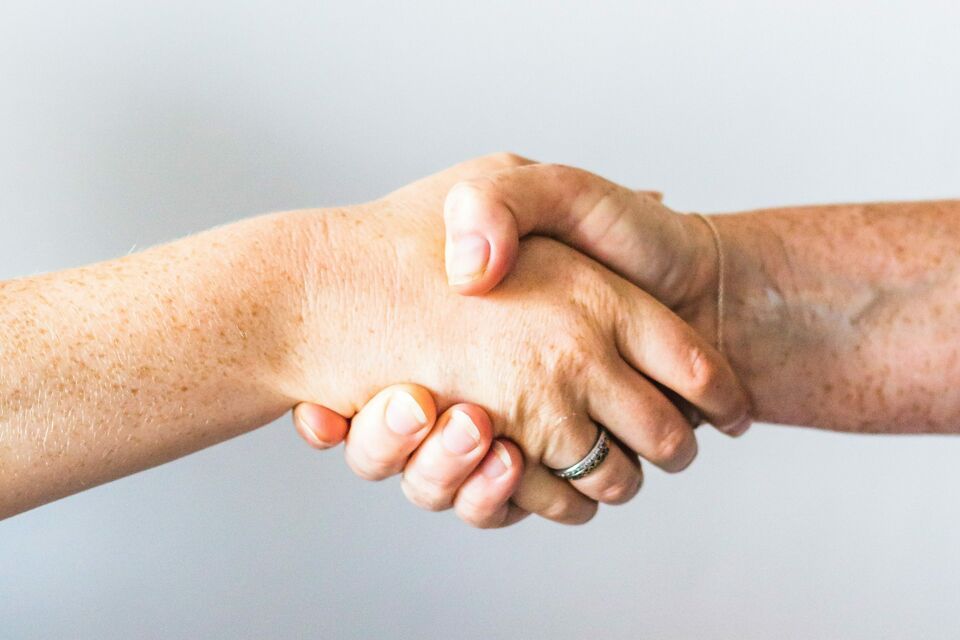In the midst of the pandemic arrival of the Coronavirus COVID-19 and the seriousness of the health challenges that accompany it, we will bring a lot of elements of our lives under scrutiny. Things we have taken for granted may have far reaching risks and consequence. One item that we certainly will be looking at differently is the handshake. It is one of the most common forms of greeting used around the world, with some differences culture to culture, but essentially the same social meaning. We find evidence of handshakes in Ancient Greek and Assyrian stone carvings commemorating alliances and treaties between rulers dating back to at least 900 BC.
A hand shake was known as “dexiosis” or the joining together of the right hands. It was likely intended to show that the offerer was not holding any weapons, and the shaking would loosen up any weapons hidden up under sleeves. An interesting side note is that the Ancient Greek word for right is “dexter” (as in dexterous) and the word for left is “sinister” (which may explain why we don’t shake left handed).
Different cultures attach their own significance to various aspects of the handshake. The general rule is that overly aggressive handshakes are not popular and that a handshake should be an expression of peace and greeting rather than the prelude to arm wrestling. 17th Century Quakers are said to have popularized the handshake, considering it more egalitarian that bowing or tipping the hat. The forearm handshake has appeared from Roman times up through the present but is probably more of a show of force and more useful for helping someone to their feet or pulling them to safety, than as a greeting.
Modern offshoots of the handshake have presented themselves as fist bumps and high fives and during flu seasons we seem to see a lot of the elbow bump as an alternative to hand shakes.
Handshakes do seem to be an efficient germ transfer mechanism and these days, the pandemic is on the top of everyone’s mind. Although the numbers of COVID-19 don’t begin to compare with past pandemics, the speed with which we can report the issues is unparalleled and the movement around the world of people carrying a virus is a potential accelerator. Communication and containment are a huge key to slowing down the rapid spike of a pandemic. We have heard from Italy that we should take this pandemic extremely seriously and not dismiss it casually. The loss of life of friends and family is a very serious matter.
Perhaps after almost 3000 years of handshakes, we will start to consider other means of greeting that may be less efficient at virus delivery. Perhaps also, we will take coughing into the air a lot more seriously and do a better job of more regularly washing our hands. And just maybe, bowing isn’t such a bad form of greeting after all. However, I think the human contact of handshaking is an important element of how we relate. If it’s all the same to you, I’ll take an elbow bump over a bow. I will also make sure to cough or sneeze into my non bumping elbow.
Stay healthy, my friends! This too shall pass.
